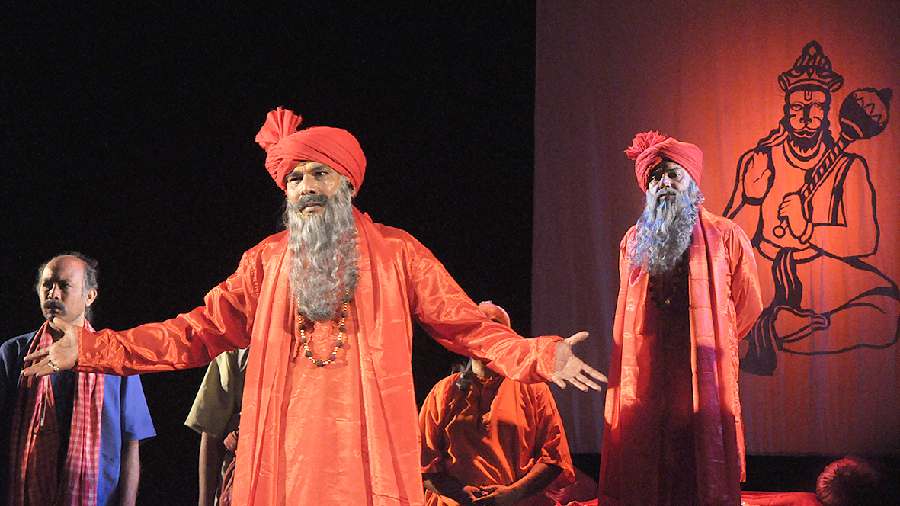At a time when people across the country are waking up to Utpal Dutt’s stature as the finest playwright of 20th-century India, his own group, People’s Little Theatre, decided to revive Janatar Aphim (Opium of the People). Dutt (1929-93) wrote this scathing exposé on militant Hindutva in the wake of the Ram Janmabhoomi movement gathering steam and PLT premiered it on December 16, 1991 — a year before Babri masjid was demolished, changing the contours of South Asian politics. PLT’s decision to revive the production two years before the formal inauguration of the Shri Ram Janmabhoomi Temple in Ayodhya is smart. Dutt took a leaf out of Karl Marx’s legendary statement on religion and its repercussions on people as he launched a no-holds-barred attack on the means and manoeuvrings of the saffron block. As we revisit this piece, we are amazed by Dutt’s clairvoyance.
Edited and directed by Biswajit Sarkar, this revival runs for 85 minutes and ends with a video projection of one of the most decisive moments of post-Independence India. A judicious Sarkar, who also plays the lead part alongside Kamalesh Chakraborty, posits faith in Dutt’s original production design. The action thus unfolds inside Acharya Somdev’s akhada in Mathura, where the sangh parivar apparatchiks rule supreme and kar sevaks gear up for action with no idea about its consequences. Rationality takes a back seat as faith runs amok and myth is interpreted to divide people. Intellectuals with dubious credentials join the fray and journalists follow suit. Meanwhile, entrepreneurs warm up to take advantage of the situation. Dutt’s fascination with William Shakespeare surfaces in the climax where people’s sentiments are manipulated in a public meeting — the forum scene from Julius Caesar is appropriated with good reason.
PLT’s actors, an interesting mix of seasoned warhorses and shaky newcomers, look determined. Ahvana Paul, Dutt’s granddaughter, makes her stage debut as Ruksana, the girl hounded by the ferocious mob. Watch out for this serio-comic scene to appreciate Dutt’s position about the status of minorities in a majoritarian India.


